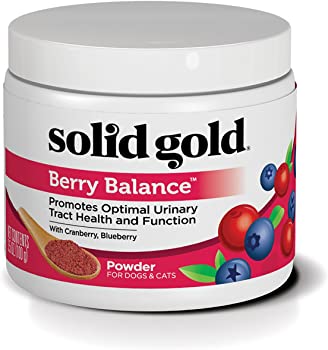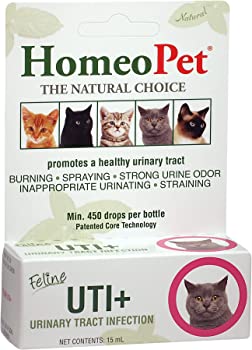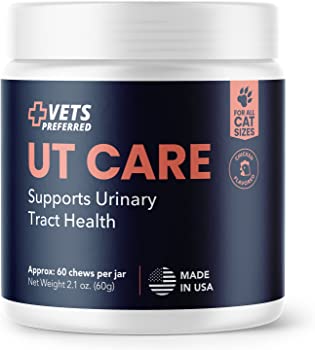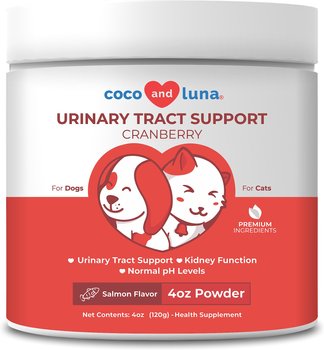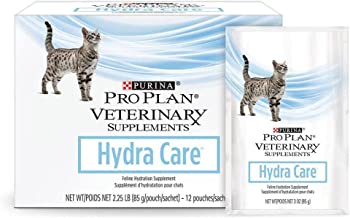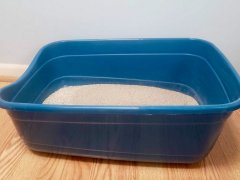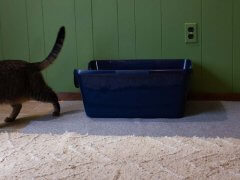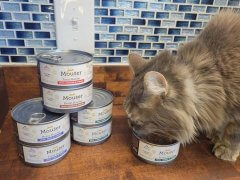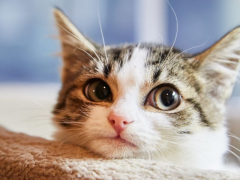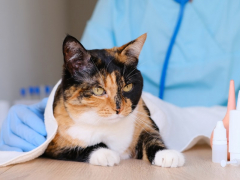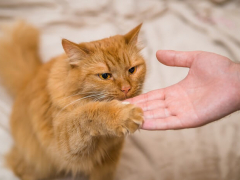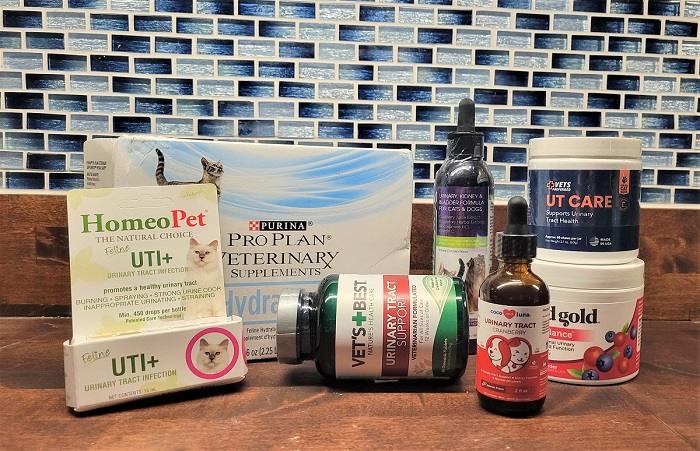
Kate Barrington / Cats.com
The best supplements for cat urinary health contain active ingredients proven to help resolve or prevent symptoms of urinary tract issues. Pet supplements are a dime a dozen, though, and it can be tricky to find one that actually works.
We recommend UroMAXX Urinary Tract, Kidney & Bladder Formula as the best supplement for cat urinary health. These chews are available without a prescription and contain four active ingredients designed to support your cat’s urinary tract health and kidney function.
But this urinary health supplement isn’t the only one on the market. Here we’ll delve into the subject of cat urinary health and explore some of the best supplements on the market in this category.
At a Glance: Best Rated Cat Supplements For Cat Urinary Health To Buy




Want a quick look at the products reviewed in this article? In the comparison table below, we’ve highlighted some of the most important features of each product. You’ll find more detailed information about each product later in the article.

UroMAXX Urinary Tract, Kidney & Bladder Formula
- Easy to administer with the included dropper
- Tasty chicken flavor
- Helps make the urinary tract less hospitable for bacteria

Solid Gold Cranberry Supplement for Urinary Tract Health
- Easy to administer powder form
- Made with antioxidant-rich cranberry and blueberry
- Beef liver flavor cats seem to like

Vet’s Best Cat Urinary Tract Support Chewables
- Affordably priced under $10
- Contains a variety of active ingredients
- Formula developed by a veterinarian

HomeoPet UTI Plus Urinary Tract Support Drops
- Supports urinary health and kidney function
- Safe for kittens weighing under 1 pound
- Easy to administer by mouth or in food/water

Vet’s Preferred Cat Urinary Tract Chews
- Made with four active ingredients
- Cranberry and astragalus support kidney function
- Appealing chicken flavor and chewy texture

Coco and Luna Urinary Tract Cranberry Supplement
- Easy to administer powder form
- Affordably priced, one container has over 100 servings
- Supports urinary wellness and immune system health

Purina Pro Plan Veterinary Diets Hydra Care Supplement
- Appealing liver flavor and gravy-like consistency
- Encourages cats to drink more water
- Contains natural osmolytes to help cells absorb water
Before going into detail about our top picks, let’s take a look at some of the most common urinary tract problems in cats to learn how the supplements we’ve recommended can help.
5 Common Cat Urinary Health Problems
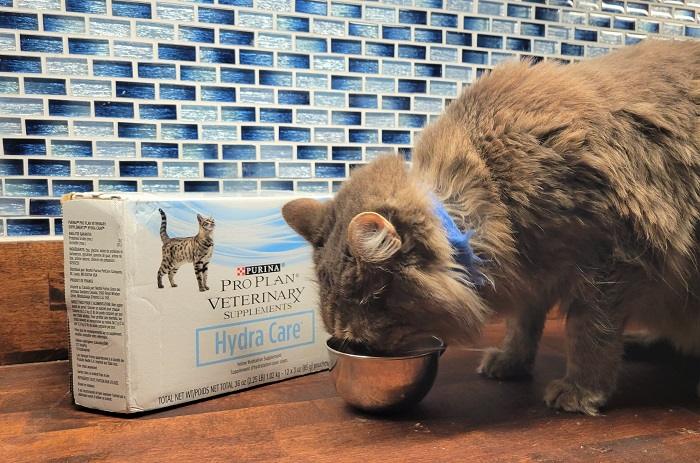
Kate Barrington / Cats.com
Urinary tract disorders are fairly common in cats and many of the symptoms overlap. Straining to urinate, increased frequency of urination, and peeing outside the litter box are often an indication of urinary health problems in cats. But there are numerous concerns in this category.
Some of the most common urinary health problems seen in cats include:
A urinary tract infection (UTI) is an infection that affects any part of the urinary tract, which includes the kidneys, ureters (carries urine from the kidneys to the bladder), bladder, and urethra (carries urine from the bladder to the outside of the body). The bladder and urethra make up the lower urinary tract.
Because UTIs most commonly affect the bladder, they’re also sometimes called bladder infections.
UTIs fall under the heading of feline lower urinary tract disease (FLUTD). They occur when bacteria enter the bladder through the urethra.
Common symptoms of UTIs in cats include peeing outside the litter box, frequent urination, and straining to urinate. Cats may also cry or vocalize during urination out of pain and you may notice increased odor or blood in your cat’s urine.
1. Feline Lower Urinary Tract Disease (FLUTD)
The term FLUTD is used to describe a group of illnesses affecting the bladder and urethra in cats. These illnesses range in severity from mild to very serious and can be brought on by infections, inflammation, diet, or even behavioral problems.
FLUTD can affect cats of any age, but it’s most commonly seen in older and overweight cats. Diagnosing FLUTD generally involves a review of clinical symptoms, a physical exam, and a urinalysis. In some cases, other testing such as bloodwork or x-rays may be required.
2. Feline Idiopathic Cystitis (FIC)
Feline idiopathic cystitis (FIC) is the name given to cases of FLUTD in which the cause is unknown. Though the exact cause is unknown, stress is often a key factor in the development of FIC.
Cats with FIC often have trouble urinating but, due to bladder discomfort, make frequent attempts to urinate. It’s common to find blood in the urine of cats with FIC as well.
Many cases of FIC resolve within a few weeks, with or without treatment. However, many veterinarians recommend treating the condition to help prevent a recurrence. Stress management is an important part of treating and preventing FIC. It’s also a good idea to keep your cat’s diet consistent.
3. Bladder Stones
Uroliths, or urinary stones, are other names for bladder stones. These are rock-like collections of minerals that form in the urinary tract, causing pain and discomfort. Urinary stones can even block the urethra, causing a dangerous urinary obstruction that requires emergency veterinary care.
Bladder stones in cats are divided into two types: struvite stones and calcium oxalate stones. Struvite stones form in alkaline (non-acidic) urine and are linked to diets high in magnesium and phosphorus. Calcium oxalate stones form in more acidic urine and most commonly affect cats over 7 years of age. These stones can develop when blood calcium levels are too high, often from excessive calcium supplementation.
4. Urinary Tract Obstruction
Male cats, compared to female cats, have a higher risk of developing urinary tract obstructions. While urinary stones are the most common cause, obstructions can also result from urethral plugs, tumors, physical abnormalities in the bladder or urethra, or lower urinary tract inflammation.
Urinary tract obstructions may be partial or complete. Unfortunately, the signs of partial obstruction can be easy to miss, which may allow the condition to progress into a life-threatening complete urinary obstruction. When the urethra becomes blocked, urine can’t flow normally. The blockage can damage the lower urinary tract and cause your cat to go into kidney failure.
Early signs of urinary tract obstruction may include frequent trips to the litter box, increased vocalization, and overgrooming around the anus and urethra. Treatment generally involves medication to dissolve the stones or placement of a urinary catheter to relieve the blockage.
Do Supplements Really Help?
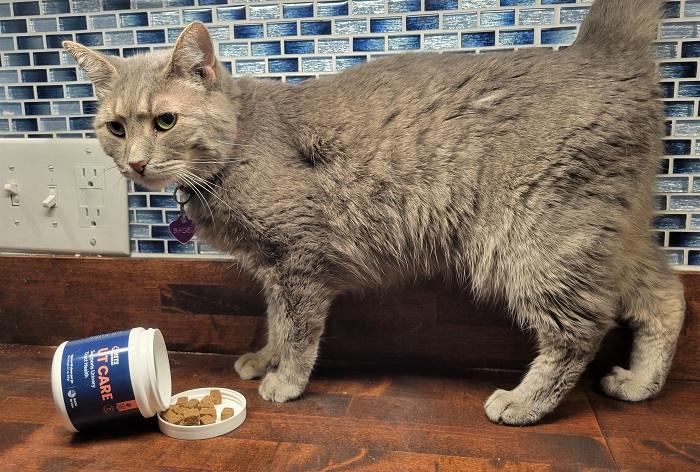
Kate Barrington / Cats.com
There’s a supplement for everything. But just because a product claims to provide a certain benefit doesn’t necessarily mean that it actually does. It all comes down to the active ingredients and whether they’ve been scientifically shown to work for cats.
For example, drinking cranberry juice is a popular natural remedy for recurring UTIs in humans. Studies show that various compounds found in cranberries can help prevent bacteria from adhering to the lining of the urinary tract, kill bacteria in the bladder, and reduce inflammation. These results are not universal, however, and scientific study involving pets is limited.
Cranberry extract, a common ingredient in urinary care supplements, might provide some benefit, but it is unlikely to be more effective than antibiotics.
It’s also worth noting that many studies on the effects of cranberry juice for UTIs in humans involve a single strain of bacteria, E. coli. While E. coli can cause UTIs in pets, it isn’t the only type of bacteria that can. The efficacy of cranberry juice also depends on the dosage, and there is no standardized, scientifically-tested dose for cranberry juice in pets.
Whether it’s nutritional supplements, probiotics, or products to support urinary wellness, it’s important to take health claims with a grain of salt.
Do your research before purchasing a supplement to make sure that the product is formulated based on scientific evidence and recommended by veterinarians. Look for products made in the USA or certified by a national regulatory agency. Choose a supplement formulated for the specific problem your cat is experiencing, whether it’s high urinary pH, recurring UTIs, or bladder inflammation.
Most importantly, however, talk to your vet before starting a supplement to make sure it is safe to take with your cat’s current treatments. Your vet can also give you recommendations for urinary health supplements for your cat.
Best Supplements for Cat Urinary Health: Our Top 7 Picks
Supplements Can Help Support Urinary Health, but They Aren’t a Substitute for Treatment
There’s no replacement for sound veterinary advice. Whatever problems your cat is experiencing, it’s important to address the issue with your vet instead of trying to diagnose and treat it yourself.
While most urinary health problems are not life-threatening for cats, they can be extremely uncomfortable – even painful – and lack of treatment could cause the issue to progress into something more serious. Untreated urinary problems also frequently contribute to behavioral issues like peeing outside the litter box and increased irritability.
Treatment for urinary health concerns varies depending on the specific issue. In addition to treatment, your veterinarian may recommend giving your cat a supplement. Urinary health supplements are intended to support your cat’s ongoing urinary health and to help remedy or prevent issues that contribute to urinary issues.
Before purchasing a supplement, talk to your vet about what active ingredients to look for so you can be sure you’re supporting the critical aspect of your cat’s urinary health.

